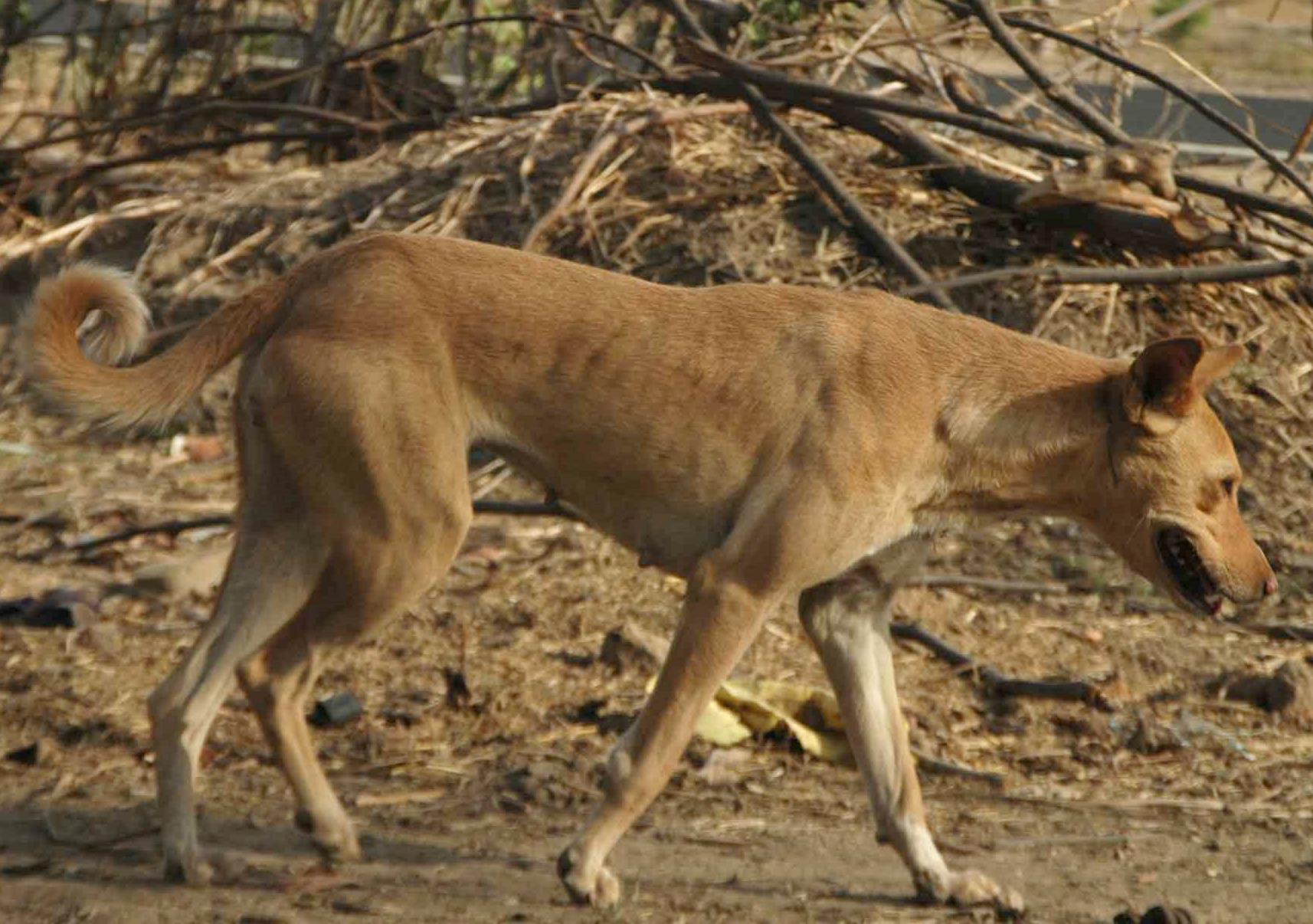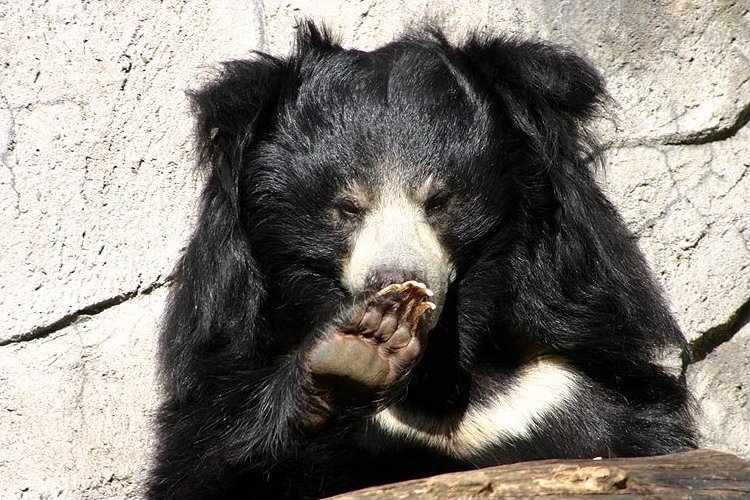|
Kenneth Anderson (writer)
Kenneth Douglas Stewart Anderson (8 March 1910 – 30 August 1974) was an Indian writer and hunter who wrote books about his adventures in the jungles of South India. Biography Kenneth Anderson was born in Bolarum, Secunderabad and came from a Scottish family that settled in India for six generations. His father Douglas Stuart Anderson was superintendent of the F.C.M.A. in Poona, Maharashtra and dealt with the salaries paid to military personnel, having an honorary rank of captain. His mother Lucy Ann Taylor née Bailey was the grand-daughter of John Taylor who, for his services, had been gifted land in Bangalore by Sir Mark Cubbon (army officer), Mark Cubbon. Douglas like most Scottish soldiers took an interest in sport hunting and influenced Kenneth's interest in the outdoors and hunting. Anderson went to Bishop Cotton Boys' School and also studied at St Joseph's College, Bangalore. He was sent to study law at Edinburgh, Scotland but he quit studies and returned to India. ... [...More Info...] [...Related Items...] OR: [Wikipedia] [Google] [Baidu] |
Pariah Dog
Pye-dog, or sometimes pariah dog, is a term used to describe an ownerless, half-wild, free-ranging dog that lives in or close to human settlements throughout Asia. The term is derived from the Sanskrit ''para'', which translates to "outsider". The United Kennel Club uses the term pariah dog to classify various breeds in a sighthound and pariah group. Gallery Image:Canaan_Dog.jpg, In Israel Image:Penang Feral Dog.jpg, In Malaysia Image:Wilde huendin am stillen.jpg, In Sri Lanka Image:Taiwan 2009 JinGuaShi Historic Gold Mine Stray Dog FRD 8919.jpg, In Taiwan See also * Hawaiian Poi Dog * Indian pariah dog * Sinhala Hound Sinhala may refer to: * Something of or related to the Sinhalese people of Sri Lanka * Sinhalese people * Sinhala language Sinhala ( ; , ''siṁhala'', ), sometimes called Sinhalese (), is an Indo-Aryan languages, Indo-Aryan language prima ... References Dog types Feral dogs {{Dog-stub ... [...More Info...] [...Related Items...] OR: [Wikipedia] [Google] [Baidu] |
St Joseph's College, Bangalore
St. Joseph's University is a private aided, Jesuit, higher educational institution run by the Karnataka Province of the Society of Jesus in Bangalore, Karnataka, India. It is one of the oldest educational institution in the state of Karnataka with a history of years. It has been conferred with the award ''College of Excellence'' by the University Grants Commission (India). The institution was awarded a rating of A++ (3.79/4), in the 4th cycle of re-accreditation by the National Assessment and Accreditation Council (NAAC) in 2017. It offers graduate, post-graduate and research education. St. Joseph's University has around 300 teaching and non-teaching staff and more than 5500 students. The university is located at Langford Road near Richmond Circle, Bengaluru, Karnataka, India. History In the year 1854, St. Joseph's was set up by Missions étrangères de Paris (MEP) because of the need to provide education for the small Catholic community comprising about 1000 Europeans and 5 ... [...More Info...] [...Related Items...] OR: [Wikipedia] [Google] [Baidu] |
Studebaker
Studebaker was an American wagon and automobile manufacturer based in South Bend, Indiana, with a building at 1600 Broadway, Times Square, Midtown Manhattan, New York City. Founded in 1852 and incorporated in 1868 as the Studebaker Brothers Manufacturing Company, the firm was originally a coachbuilder, manufacturing wagons, buggies, carriages and harnesses. Studebaker entered the automotive business in 1902 with electric vehicles and in 1904 with gasoline vehicles, all sold under the name "Studebaker Automobile Company". Until 1911, its automotive division operated in partnership with the Garford Company of Elyria, Ohio, and after 1909 with the E-M-F Company and with the Flanders Automobile Company. The first gasoline automobiles to be fully manufactured by Studebaker were marketed in August 1912. Over the next 50 years, the company established a reputation for quality, durability and reliability. After an unsuccessful 1954 merger with Packard (the Studebaker-Packard Co ... [...More Info...] [...Related Items...] OR: [Wikipedia] [Google] [Baidu] |
Tamil Language
Tamil (; ' , ) is a Dravidian language natively spoken by the Tamil people of South Asia. Tamil is an official language of the Indian state of Tamil Nadu, the sovereign nations of Sri Lanka and Singapore, and the Indian territory of Puducherry (union territory), Puducherry. Tamil is also spoken by significant minorities in the four other South Indian states of Kerala, Karnataka, Andhra Pradesh and Telangana, and the Union Territory of the Andaman and Nicobar Islands. It is also spoken by the Tamil diaspora found in many countries, including Malaysian Tamil, Malaysia, Myanmar Tamils, Myanmar, Tamil South Africans, South Africa, British Tamils, United Kingdom, Tamil Americans, United States, Tamil Canadians, Canada, Tamil Australians, Australia and Tamil Mauritians, Mauritius. Tamil is also natively spoken by Sri Lankan Moors. One of 22 scheduled languages in the Constitution of India, Tamil was the first to be classified as a Languages of India, classical language of India ... [...More Info...] [...Related Items...] OR: [Wikipedia] [Google] [Baidu] |
Kannada
Kannada (; ಕನ್ನಡ, ), originally romanised Canarese, is a Dravidian language spoken predominantly by the people of Karnataka in southwestern India, with minorities in all neighbouring states. It has around 47 million native speakers, and was additionally a second or third language for around 13 million non-native speakers in Karnataka. Kannada was the court language of some of the most powerful dynasties of south and central India, namely the Kadambas, Chalukyas, Rashtrakutas, Yadava Dynasty or Seunas, Western Ganga dynasty, Wodeyars of Mysore, Nayakas of Keladi Hoysalas and the Vijayanagara empire. The official and administrative language of the state of Karnataka, it also has scheduled status in India and has been included among the country's designated classical languages.Kuiper (2011), p. 74R Zydenbos in Cushman S, Cavanagh C, Ramazani J, Rouzer P, ''The Princeton Encyclopedia of Poetry and Poetics: Fourth Edition'', p. 767, Princeton Un ... [...More Info...] [...Related Items...] OR: [Wikipedia] [Google] [Baidu] |
Survival Skills
Survival skills are techniques that a person may use in order to sustain life in any type of natural environment or built environment. These techniques are meant to provide basic necessities for human life which include water, food, and shelter. These skills also support proper knowledge and interactions with animals and plants to promote the sustaining of life over a period of time. Survival skills are often associated with the need to survive in a disaster situation. Survival skills are often basic ideas and abilities that ancient people invented and used themselves for thousands of years. Outdoor activities such as hiking, backpacking, horseback riding, fishing, and hunting all require basic wilderness survival skills, especially in handling emergency situations. Bushcraft and primitive living are most often self-implemented but require many of the same skills. First aid First aid ( wilderness first aid in particular) can help a person survive and function with inju ... [...More Info...] [...Related Items...] OR: [Wikipedia] [Google] [Baidu] |
Tribe
The term tribe is used in many different contexts to refer to a category of human social group. The predominant worldwide usage of the term in English is in the discipline of anthropology. This definition is contested, in part due to conflicting theoretical understandings of social and kinship structures, and also reflecting the problematic application of this concept to extremely diverse human societies. The concept is often contrasted by anthropologists with other social and kinship groups, being hierarchically larger than a lineage or clan, but smaller than a chiefdom, nation or state. These terms are equally disputed. In some cases tribes have legal recognition and some degree of political autonomy from national or federal government, but this legalistic usage of the term may conflict with anthropological definitions. In the United States, Native American tribes are legally considered to have "domestic dependent nation" status within the territorial United States, ... [...More Info...] [...Related Items...] OR: [Wikipedia] [Google] [Baidu] |
Dhole
The dhole (''Cuon alpinus''; ) is a canid native to Central, South, East and Southeast Asia. Other English names for the species include Asian wild dog, Asiatic wild dog, Indian wild dog, whistling dog, red dog, red wolf, and mountain wolf. It is genetically close to species within the genus '' Canis'', but distinct in several anatomical aspects: its skull is convex rather than concave in profile, it lacks a third lower molar and the upper molars sport only a single cusp as opposed to between two and four. During the Pleistocene, the dhole ranged throughout Asia, Europe and North America but became restricted to its historical range 12,000–18,000 years ago. The dhole is a highly social animal, living in large clans without rigid dominance hierarchies and containing multiple breeding females. Such clans usually consist of about 12 individuals, but groups of over 40 are known. It is a diurnal pack hunter which preferentially targets large and medium-sized ungu ... [...More Info...] [...Related Items...] OR: [Wikipedia] [Google] [Baidu] |
Bison
Bison are large bovines in the genus ''Bison'' (Greek: "wild ox" (bison)) within the tribe Bovini. Two extant and numerous extinct species are recognised. Of the two surviving species, the American bison, ''B. bison'', found only in North America, is the more numerous. Although colloquially referred to as a buffalo in the United States and Canada, it is only distantly related to the true buffalo. The North American species is composed of two subspecies, the Plains bison, ''B. b. bison'', and the wood bison, ''B. b. athabascae'', which is the namesake of Wood Buffalo National Park in Canada. A third subspecies, the eastern bison (''B. b. pennsylvanicus'') is no longer considered a valid taxon, being a junior synonym of ''B. b. bison''. References to "woods bison" or "wood bison" from the eastern United States refer to this subspecies, not ''B. b. athabascae'', which was not found in the region. The European bison, ''B. bonasus'', or wisent, or zubr, or colloquially Euro ... [...More Info...] [...Related Items...] OR: [Wikipedia] [Google] [Baidu] |
Leopard
The leopard (''Panthera pardus'') is one of the five extant species in the genus '' Panthera'', a member of the cat family, Felidae. It occurs in a wide range in sub-Saharan Africa, in some parts of Western and Central Asia, Southern Russia, and on the Indian subcontinent to Southeast and East Asia. It is listed as Vulnerable on the IUCN Red List because leopard populations are threatened by habitat loss and fragmentation, and are declining in large parts of the global range. The leopard is considered locally extinct in Hong Kong, Singapore, South Korea, Jordan, Morocco, Togo, the United Arab Emirates, Uzbekistan, Lebanon, Mauritania, Kuwait, Syria, Libya, Tunisia and most likely in North Korea, Gambia, Laos, Lesotho, Tajikistan, Vietnam and Israel. Contemporary records suggest that the leopard occurs in only 25% of its historical global range. Compared to other wild cats, the leopard has relatively short legs and a long body with a large skull. Its fur is marked wi ... [...More Info...] [...Related Items...] OR: [Wikipedia] [Google] [Baidu] |
Sloth Bear Of Mysore
The Sloth bear of Mysore was an unusually aggressive Indian sloth bear responsible for the deaths of at least 12 people and the mauling of two dozen others in 1957. It was killed by Kenneth Anderson, who described it in his memoirs ''Man-Eaters and Jungle Killers'': The reasons given to explain the Mysore sloth bear's unusual behaviour varied. Some of the natives within the bear's killing range thought that the bear was a sow taking revenge on humanity after her cubs were stolen. Others thought that it was a male which had previously abducted a young girl as its mate, only to have her rescued by the villagers, thus inciting the bear's anger. Kenneth Anderson believed that the bear had previously been injured by humans and altered its behaviour accordingly. First attacks The bear began its attacks in the Nagvara Hills, east to the town of Arsikere, 105 miles north-west of Bangalore in Mysore State. It made its home in the numerous boulder strewn hillocks, from whence it wou ... [...More Info...] [...Related Items...] OR: [Wikipedia] [Google] [Baidu] |








